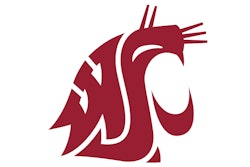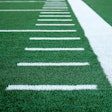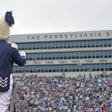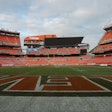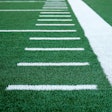The Ryan name is all over the Northwestern University athletic campus. There's Welsh-Ryan Arena. There's Ryan Fieldhouse, a 2019 Facilities of Merit honoree and arguably among the most progressive indoor practice facilities in the nation. And then there's Ryan Field, which The Athletic describes as "widely considered to be one of the most outdated college football stadiums in the country." But that's about to change.
The Athletic reports that the 95-year-old, 47,000-seat stadium is about to undergo its first renovation since 1997, thanks to a massive $480 million donation to the university by Patrick and Shirley Ryan. The largest gift in the university's 170-year history will also support research in medical sciences and bolster university leadership positions in business.
“We deeply appreciate the Ryan Family’s enduring dedication to our student-athletes,” Northwestern athletic director Derrick Gragg said in a release. “The impact of their visionary generosity on past, present and future Wildcats is truly incomparable. The rebuilt Ryan Field will be a world-class venue befitting this institution’s pursuit of excellence in all areas.”
As reported by The Athletic, exactly what the redevelopment will entail is unclear, but goals include exceeding Americans with Disabilities Act (ADA) requirements and focusing on environmental sustainability. The request-for-proposal process for an architect is just getting underway, and the construction process will take multiple years — all but ensuring that Northwestern will likely have to play its home football games elsewhere in the meantime. Once completed, the renovation will create “an enhanced game-day experience for students, alumni, fans and the surrounding community," the university says.
“Shirley and I believe in the power of sports to develop the whole person — mind, body and soul for all students. This holistic approach prepares Northwestern student-athletes to be the leaders of tomorrow,” Pat Ryan said in a release. “And as long-time fans of all Wildcat teams, we have seen firsthand how powerful Northwestern Athletics can be in building community."




















